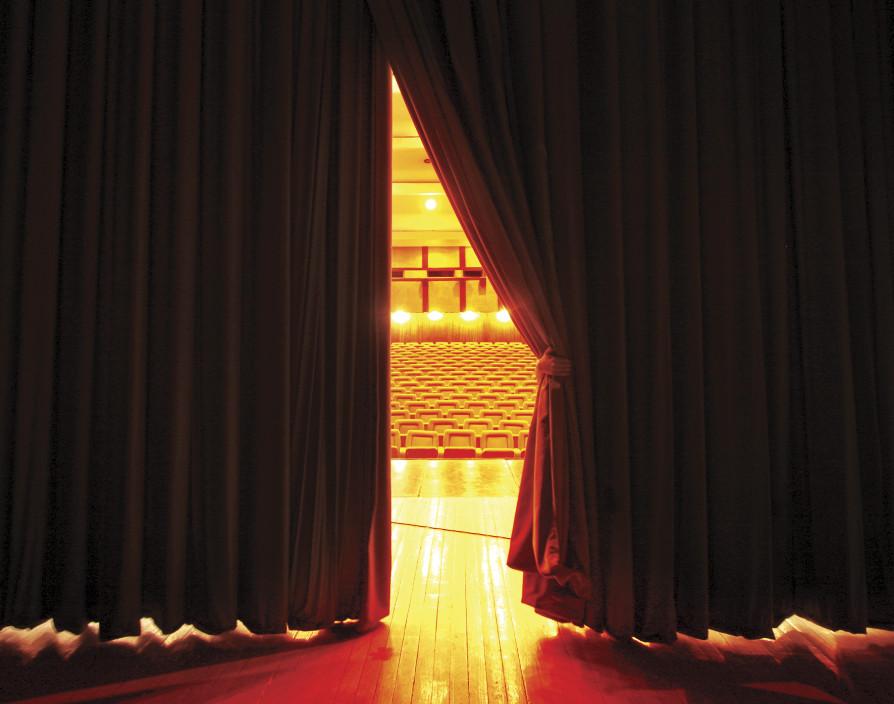The arts sector has faced a torrid couple of years. With venues being among the first to close in lockdown and the last to re-open, they were one of the hardest hit during Covid.
Now the cost-of-living crisis has brought about new challenges, and many smaller production companies are concerned about dwindling audiences as the economic storm intensifies. While Brits are reducing their spending, this is having a significant impact on independent theatres – those with fewer than 300 seats – in particular. Our research with the Society of Independent Theatres (SIT) is telling: as consumers cut back on amenities, three quarters (75%) of theatres say their ticket sales have still not returned to pre-Covid levels.
Research undertaken by GoDaddy demonstrates the difficult decisions consumers are having to take, and how this is impacting the arts.
We found that three in five (61%) Brits say they have had to scale back on cultural activities to save money due to the cost-of-living crisis. This is also a habit that is reflected in pre-pandemic attendance, with seven in ten (71%) Brits having visited an independent theatre in 2019 – a number which falls to 57% in 2022.
This has had a significant impact on revenues for independent theatres, with around £845m in lost ticket sales this year, compared to pre-pandemic levels. Three quarters (75%) of venues say customers are buying fewer tickets, and four in five (88%) are concerned for their long-term future.
I’m a firm believer that independent theatres are not just local cultural landmarks, they are also microbusinesses that are a vital part of their local economies. This is certainly true when looking at our consumer research and the wider ramifications, as the cost-of-living crisis is also hitting secondary spend: 77% of theatre-goers also spend money with pubs, bars, restaurants, taxi firms and transport companies as part of their visits, which could be worth around £2.5bn to town centre trade in 2022 alone. However, there is hope, with over half of people saying that local, independent theatres are a crucial part of community life.
One such example of an independent theatre that is very reliant on people continuing to come through the door is SIT member, Bristol Improv Theatre.
Luke Mallison, the theatre’s executive director, has experienced first-hand the drop in footfall and attendance for the arts industry in recent years, despite it being an important part of people’s wellbeing, lifestyle and British culture.
Bristol Improv Theatre is taking steps to become a more professional organisation, including by becoming a live wage employer and paying equity rates – union rates that outline the minimum an actor should be paid. But all of this comes at a cost:
“In previous years we have always done shows on a profit share basis, but this last year we said we have committed to paying a certain rate, no matter how many tickets we sell. But it goes beyond just ticket sales. What we are finding is people are buying tickets but then not spending any money at the bar, which is another huge revenue stream for us. This has a knock-on effect as people buy less, the cost of stocking products has also increased.”
As is often the case with the arts industry, driving online ticket sales is important to their long-term financial health, yet three quarters (75%) still rely on word of mouth to sell tickets. To support the sector in driving more trade, we have launched a new initiative for SIT members, aimed at helping them increase their online presence and to drive more web sales. The Bristol Improv Theatre, in Clifton, is just one of our customers receiving a new website to help their online presence flourish.
We understand that times are tough, but we need to get behind microbusinesses as much as we can and encourage anyone who can support their local theatre and surrounding businesses to do so. They’ll be sorely missed if they are gone.
Share via:








































